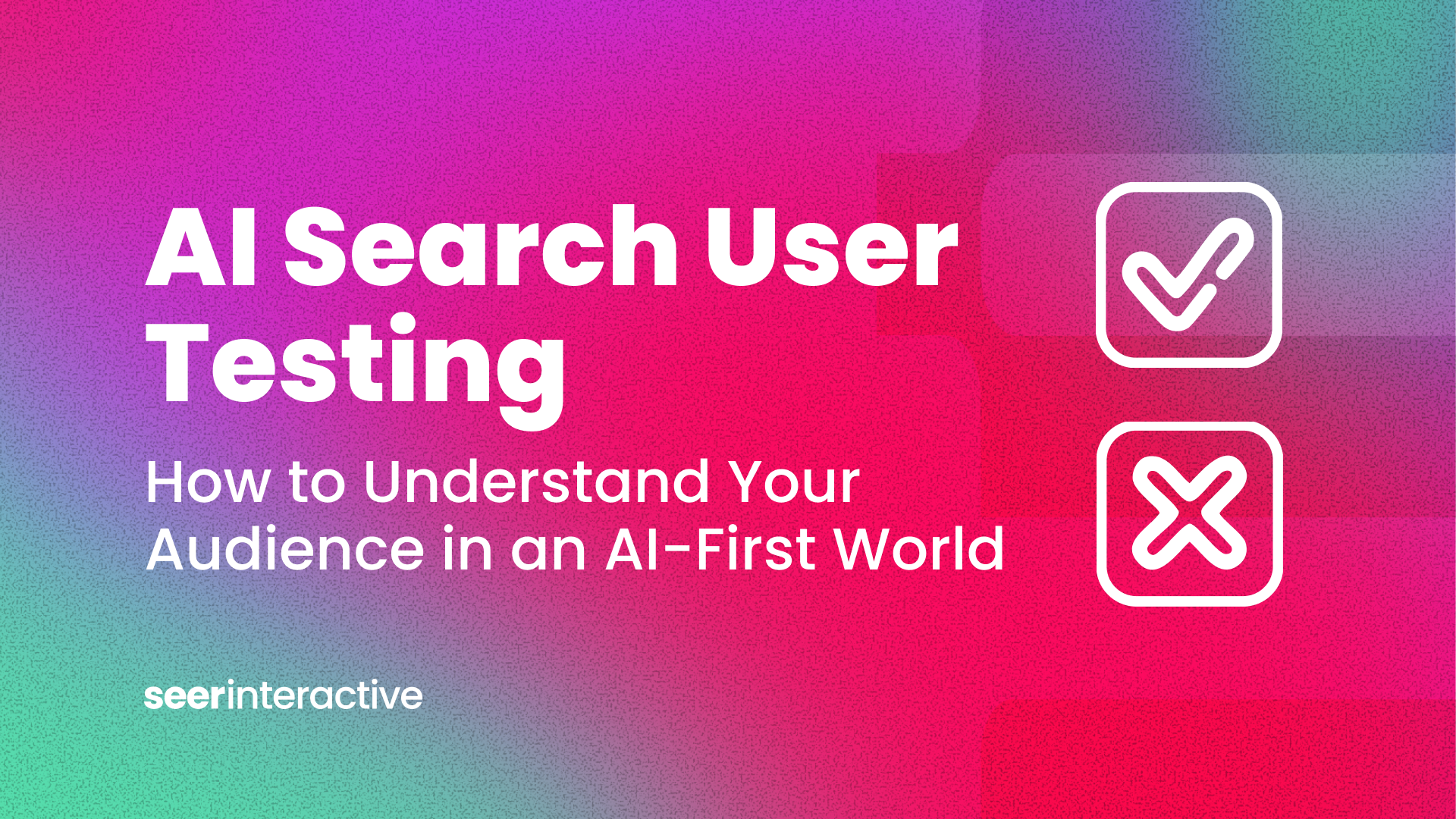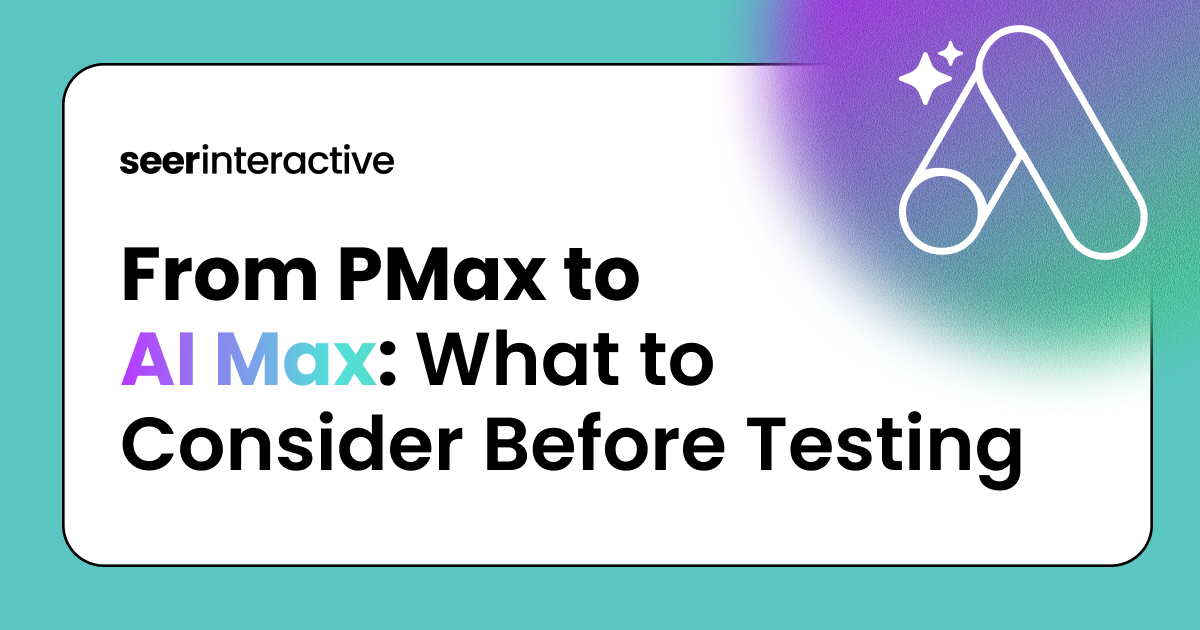In the SEO universe, everyone is talking about two things in 2024 - how AI tools are a threat to traditional search and what the Google algorithm leak reveals about optimizing for rankings. There’s a lot of fear around the future of search.
But here's my take - I'm not worried. This new information does not change my strategy for clients.
What AI Optimization and the Google Leak Have in Common
Speculation and testing around AI and the Google algorithm leak have resulted in some common themes. While we don't know for sure how to influence AI results, a recent study revealed that the best performing URLs in Generative Search have signals of credibility, authority, and readability.
The recent Google algorithm leak indicates that various signals—like links, clicks, authority of entities, brands, and sites—significantly influence organic rankings in Google search.
My perspective? None of this is new. We've known for a long time that credibility, brand-building and user engagement are important factors in digital performance.
If anything, this is more evidence that our strategic roadmap is correct.
Credibility & Trustworthiness are Important in Both SEO and AIO/GEO
Ranking in search engines and showing up in AI and Generative Engine results both require a site to be credible and authoritative.
The leak revealed that Google cares about credibility, authority and trust signals in its algorithm, as it measures backlinks, a signal of authority, and something called “SiteAuthority”. With election- and COVID-related content, Google’s algorithm has a special whitelist label for authoritative sites.
The leak also revealed that Google stores authorship information, which is one small measurement related to E-E-A-T, a ranking factor of Expertise, Experience, Authority, Trustworthiness that has grown in importance with each helpful content update.
Early research reveals that optimizing for AI results requires credibility signals, like citations, quotes, and statistics – each which back up claims and signal expertise.
We’ve known this to be true for a long time, that site authority is important for improving rankings, and the leak and AI findings only confirm this knowledge.
Here are some tactics we’re already executing on with clients:
- Add authors to informational pages, including bios or references to their expertise—such as title, education, certification, experience—that relate to the content. This signals to users and search engines that an expert wrote, reviewed, and edited this page, establishing its trustworthiness.
- Substantiate all claims with experience, citations to high-authority sources, links to studies or tests and references to a methodology. This is a signal to users and search engines that there was evidence-based reasoning behind the claim.
- Earn backlinks by creating and distributing high-quality content. Backlinks are a “vote of confidence” that your site is trustworthy on the topic.
Brands with Higher Authority & Awareness Show Up in Search and AI
Search engines want to show users credible content, and lean heavily on brand reputation to do so. LLMs learn to associate brands as authorities in their space, and serve up mentions and references to brands when they're relevant.
Insights from both the Google algorithm leak and AI studies underscore the critical role of brand reputation. As Dr. Pete Meyers showed at MozCon 2024, Google is biased towards brands, displaying authoritative brands above unbranded results. In studying the algorithm leak documents, Rand Fishkin said, “If there was one universal piece of advice I had for marketers seeking to broadly improve their organic search rankings and traffic, it would be: ‘Build a notable, popular, well-recognized brand in your space, outside of Google search.'” In theory, building a strong brand should increase the chances of that brand showing up in AI chat results.
More and more, my discussions with clients have centered on the strategic importance of enhancing brand awareness and reputation. Search traffic is inherently limited by searcher interest, and building awareness for a brand means more people search for it. But beyond fostering search interest, it's clear that building brand improves rankings (in traditional search and Generative results) as algorithms and LLMs learn to trust your brand.
Here are some tactics we’re already executing on with clients:
- Invest in PR and media partnerships
- Partner with influencers and review sites
- Foster engagement on social media, UGC platforms, like Reddit, and private WhatsApp groups
- Advertise across digital platforms
- Create excellent nonbrand content so searchers find your site
- Ask customers to leave reviews across multiple platforms
- Invest in your user and customer experience to encourage engagement and word of mouth sharing
- Advertise offline, such as TV, billboards, and print media
All of this will build future interest for your brand, causing more people to talk about your brand online, which signals to search engines and AI tools that your brand is credible and authoritative.
Content that Earns User Engagement Gets Rewarded with Rankings
In both traditional search and AI, we’re seeing indications that user engagement and experience matters.
According to the Google algorithm leak findings, clicks into a site, including “good” and “long” clicks, excluding poor-quality clicks, make a difference in rankings. It’s been clear for a long time that Google tracks how users interact with content. Though we don’t talk about bounce rate much anymore, it’s been commonly understood among marketers that if users pop into your site and don’t immediately find what they need, they’ll go somewhere else. And Google notices that kind of thing.
The Generative search study finds that top performing URLs in AI tools have content that is readable, with simple and natural language (no keyword stuffing!) This type of content tends to be more user-friendly and engaging than convoluted, technical, or verbose writing, indicating that user experience matters to AI tools too.
Here are some tactics we’re already executing on with clients:
- Test title tags to increase clicks into your site
- Optimize for conversations and site engagement with internal links and clear conversion actions
- Write readable content, increasing likelihood of capturing SERP feature ownership, like PAAs and Answer Boxes
- Utilize different modules, site tools, and assets to help readers digest the content in different forms
The Future is Unknown, But Quality, Time-Tested Strategies Still Apply
There's still a lot we don't know about how these AI tools will evolve and what ranking factors are missing from these limited Google documents. But this much is true – the findings so far aren't a surprise, and my advice to clients is still the same.
We’ve known this to be true for a long time, that site authority is important for improving rankings, and the leak and AI findings only confirm this knowledge.
Write expert-level and approachable content. Invest in your brand. Create a seamless user and customer experience.
Brands that have connected with audiences and created a great experience have been around long before Google, and the brands that want to survive the upheaval of traditional search should do the same. At Seer, we’ve been talking about this for a long time (remember when Wil used to talk about doing “Real Company Shit”?) and it still holds true today.


